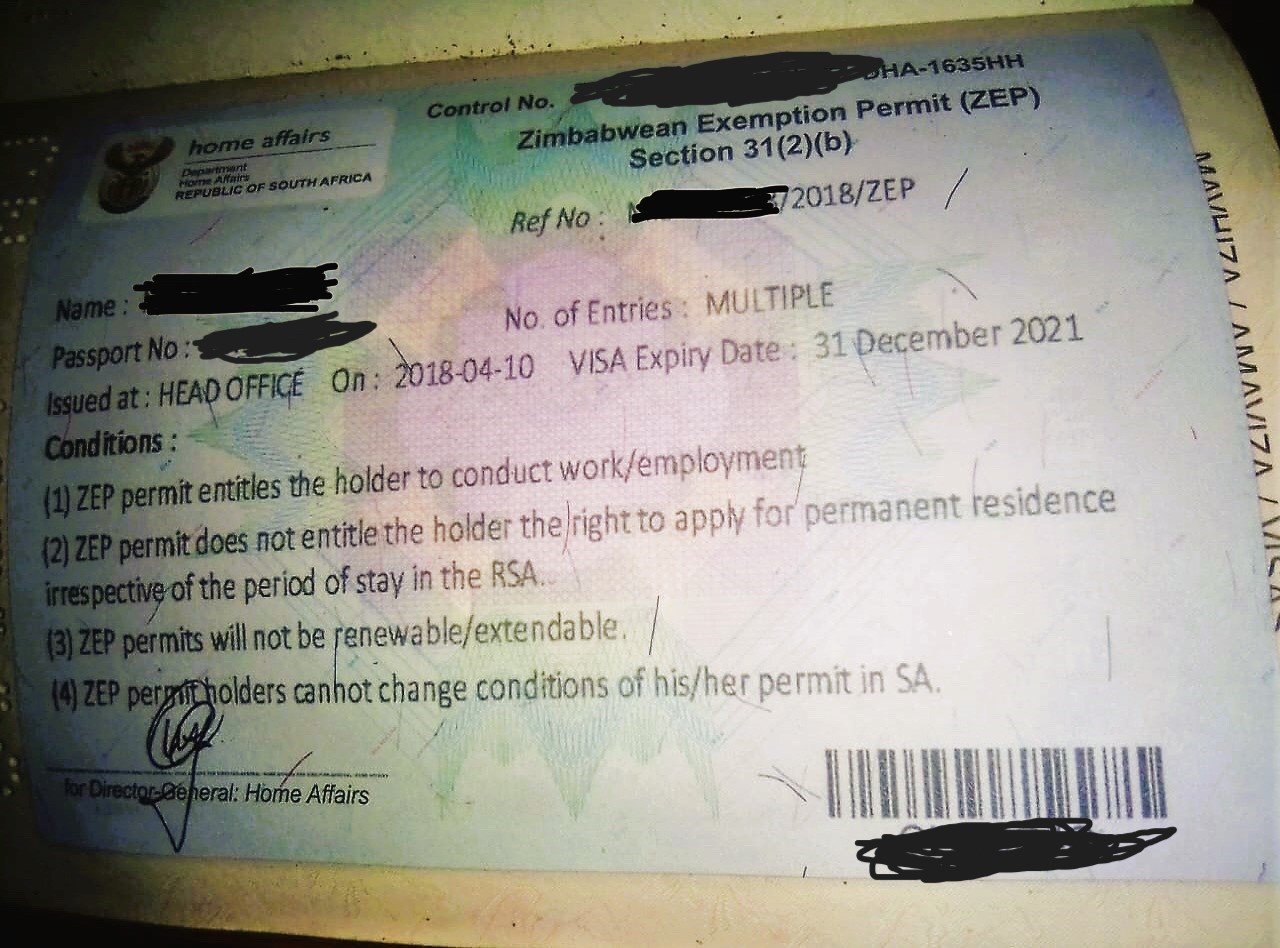Published
1 year agoon

The Zimbabwean Exemption Permit (ZEP) is a topic of significant importance in South Africa, particularly in the context of immigration and human rights. This permit, which has its roots in the Dispensation of Zimbabweans Project (DZP) of 2009, has been a lifeline for many Zimbabweans living in South Africa, allowing them to work, study, and conduct business legally in the country. However, the future of the ZEP remains uncertain, causing anxiety among the holders of these permits.
In 2009, the South African government introduced the Dispensation of Zimbabweans Project (DZP) in response to the socio-economic challenges in Zimbabwe that led to an influx of Zimbabweans into South Africa. The DZP aimed to regularize the immigration status of Zimbabweans living in the country illegally. This was followed by the Zimbabwean Special Permit (ZSP) in 2014, which allowed DZP permit holders to live, work, conduct business and study in South Africa for three years.
In 2017, the South African government announced the ZEP, a new permit that would replace the ZSP. The ZEP allowed ZSP holders to extend their stay in South Africa for an additional four years, from 2018 to 2021. The Department of Home Affairs stated that the purpose of the ZEP was to allow the government enough time to document all foreign nationals in the country.
The ZEP has had a significant impact on both the holders of the permit and South Africa as a country. For the permit holders, the ZEP has provided an opportunity to live and work legally in South Africa, contributing to the economy and supporting their families back in Zimbabwe. The permit has also reduced the vulnerability of Zimbabweans to exploitation and abuse due to their immigration status.
For South Africa, the ZEP has helped in documenting foreign nationals, thus enhancing the management of immigration. The permit holders contribute to the South African economy by paying taxes and participating in the labour market. Furthermore, the ZEP has fostered regional cooperation between South Africa and Zimbabwe.
The future of the ZEP is uncertain. The permit, which was set to expire in December 2021, has been a subject of concern among the holders. The South African government has not made a clear statement on whether the permit will be extended or replaced with a new permit. This uncertainty has caused anxiety among Zimbabweans in South Africa, as they fear being in the country illegally or being deported back to Zimbabwe.
From a legal perspective, the South African Constitution guarantees everyone within the country, including foreign nationals, the right to fair labour practices, the right to education, and the right to access healthcare services. Therefore, any decision made regarding the ZEP should consider these constitutional rights.
In a significant development, the Gauteng High Court in Pretoria has ordered Home Affairs Minister Aaron Motsoaledi not to arrest or issue deportation orders for Zimbabwean Exemption Permit (ZEP) holders. The court ruled that his decision to terminate the permits was invalid, unlawful, and unconstitutional. The court also ruled that ZEP holders must be allowed to leave or enter South Africa and may not be dealt with in terms of sections 29, 30, and 32 of the Immigration Act on the basis that they are ZEP holders. This ruling provides significant relief to ZEP holders and adds a new dimension to the ongoing discussions about the future of the ZEP.
In conclusion, the ZEP is a critical issue that requires careful consideration by the South African government. While the permit has had significant benefits, its uncertain future poses challenges for the holders. It is crucial for the government to provide a clear communication regarding the future of the ZEP to alleviate the concerns of the permit holders and to ensure that their constitutional rights are upheld. The recent court ruling underscores the importance of these rights and sets a precedent for the treatment of ZEP holders. As the situation continues to evolve, it will be essential to monitor the government’s response and the impact on the Zimbabwean community in South Africa.
I am a professional communicator, administrator, social commentator, technology enthusiast, poet, author, thinker, and opinion leader.

Scandal and Critique: President Ramaphosa Faces Rising Opposition
Workplace Challenge Programme Boosts SA Business Performance: Productivity SA Acting CEO
A New Era in Coordinated Climate Action Dawns as President Ramaphosa Assents the Climate Change Bill
Climate Commission to Hand Over South Africa’s First Ever State of Climate Action Report to Government
From Chalk to Consultancy: Tichaona Mupasiri Revolutionizes Education Solutions
Ambassador Linda Thomas-Greenfield Honors Nelson Mandela International Day



Warning: Undefined variable $user_ID in /home/iniafrica/public_html/wp-content/themes/zox-news/comments.php on line 49
You must be logged in to post a comment Login